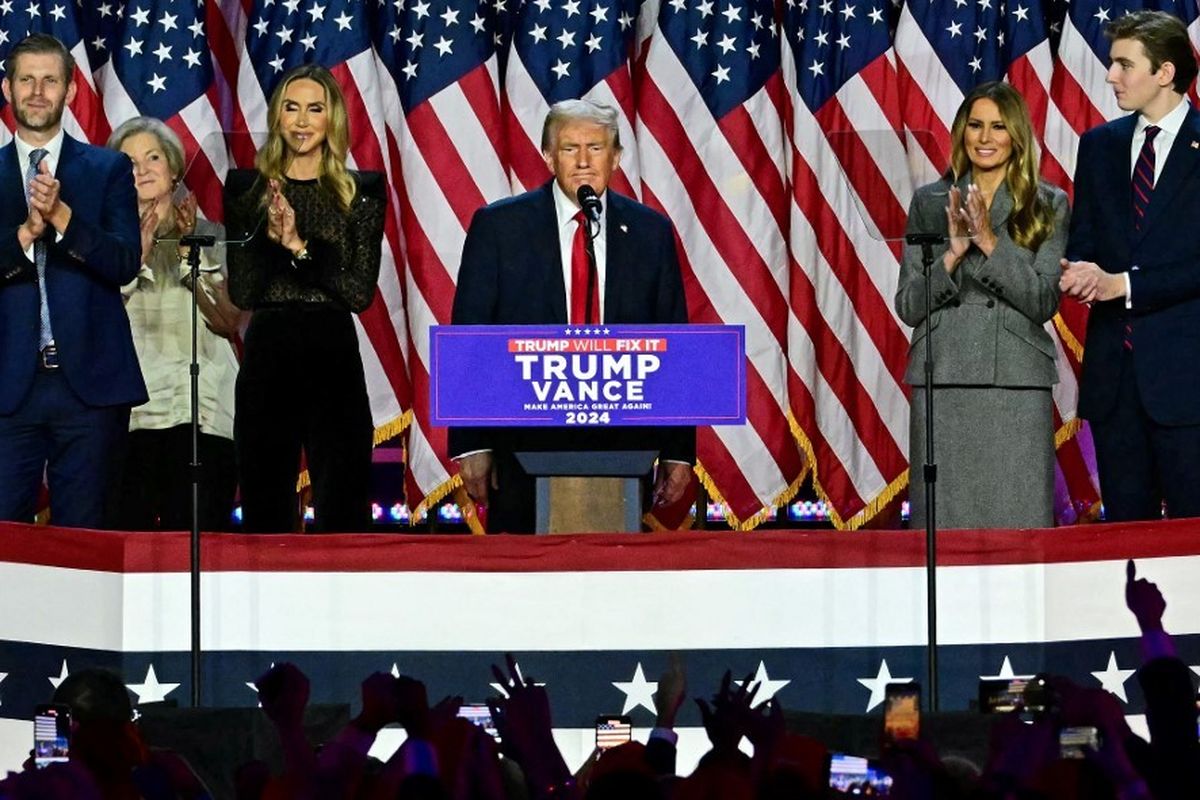New York — The surprising reelection of Donald Trump represents a pivotal moment for American journalism, prompting renewed debate over the credibility, influence, and reach of the nation’s press. By winning against Vice President Kamala Harris, Trump’s return has left journalists across the political spectrum questioning how their industry’s messaging resonates with the public—and what it means for the future of news in America. The stakes are immense, as some of these questions might remain unanswered for years to come.
In newsrooms across the country, journalists are reeling from the effects of what some have termed a “red wave,” pondering its implications for the information ecosystem in the United States. Within hours of the election outcome, some of Trump’s most ardent supporters took to social media, arguing that his victory signaled a rejection of mainstream news outlets. By Wednesday morning, headlines from conservative publications focused less on Trump himself and more on their perception of the mainstream media as the “biggest loser” of the 2024 election.
This sense of repudiation was amplified by prominent conservative voices. Matt Walsh, a podcaster from The Daily Wire, wrote that the media’s influence had been “vanquished,” claiming that Trump’s contentious relationship with the press since 2016 had ultimately dismantled the industry’s hold on public opinion. While Walsh’s rhetoric may be extreme, his view is echoed by many Trump supporters who feel that the media is a core problem facing the country. The central question that arises is whether the media can ever regain the trust of a significant portion of the American population.
A recent comment shared widely on social media highlighted this disconnect. An anonymous TV executive was quoted as saying, “If half the country has decided that Trump is qualified to be president, that means they’re not reading any of this media, and we’ve lost this audience completely.” The executive speculated that Trump’s victory could mark the end of mainstream media in its current form, sparking concerns over what shape it might take moving forward.
These sentiments reveal a deeper worry within the industry: the growing chasm between the Trump-supporting public and traditional media institutions. Aides from Trump’s campaign suggested that the media would benefit from a dose of humility. According to one such aide, the media often uses terms like “misinformation” in ways that seem one-sided, adding, “Maybe ‘misinformation’ is a lazy word that was never applied to press coverage of Biden’s health or the border. Maybe ‘offensive’ things aren’t offensive to most.”
On Wednesday, media critics and observers were quick to note the media’s waning clout. Dave Weigel, a writer for Semafor, remarked that traditional media’s influence has appeared to diminish every election cycle. He pointed out that networks perceived as friendly to Harris were filled with voices expressing horror at Trump’s reemergence. However, in the right-leaning media ecosystems of social media and conservative podcasts, this disdain was seen as increasingly out of touch with the issues voters care about.
CNN political commentator Scott Jennings articulated this disconnect during the network’s election night coverage. Reflecting on the past weeks, Jennings argued that the political narratives in mainstream media had missed key fundamentals, particularly economic concerns like inflation that were critical to voters. “We have been sitting around for the last couple weeks, and the story that was portrayed was not true,” Jennings observed. He criticized how the media focused on side issues like Puerto Rico, Liz Cheney, and polling data without addressing the primary concerns of the electorate.
Liberal commentator Ashley Allison, in contrast, reminded viewers that struggles are universal. She noted that many Harris voters also feel overlooked by media coverage, emphasizing that “a Republican’s pain is no greater or less than a Democrat’s pain.” Her remarks underscore a point that resonates across the political divide: a shared sense of frustration with how their lives are portrayed or ignored by major news outlets.
Looking ahead, Trump’s reelection suggests that his antagonistic stance toward the media will only intensify. Historically, Trump has been dissatisfied with coverage, expecting loyalty from media outlets and frequently lashing out even at favorable networks like Fox News when they deviate from his narrative. His renewed position of power raises critical questions about the future of press freedoms in the United States. Could his administration take active steps to retaliate against perceived media adversaries, such as revoking TV station licenses or restricting press access to the White House?
Media analysts are also concerned about potential self-censorship within newsrooms. In a political climate where criticism could draw hostile backlash from the administration, editors and producers may begin to question whether certain stories are worth the risk. Such concerns could alter the journalistic landscape, as reporters navigate the tightrope of delivering critical coverage without alienating substantial portions of their audience.
In the wake of these shifting dynamics, media executives are rallying staff and reaffirming their commitment to independent journalism. On Wednesday, Conde Nast chief Roger Lynch sent a memo to employees, underscoring the importance of a free press protected by the First Amendment. “A thriving, independent press is vital to democracy and the future we all share,” he wrote, acknowledging the challenging road ahead.
For an industry rooted in objectivity, Trump’s reelection marks a watershed moment. The American media faces both a crisis of confidence and an opportunity for reinvention, leaving journalists to reckon with a difficult but unavoidable question: How can they reengage a divided public and prove the enduring relevance of journalism in a time of distrust?







